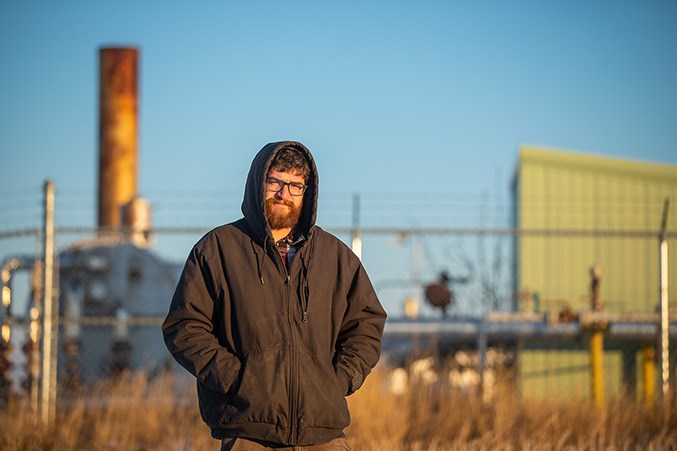An orphan well has plagued a Davisburg area farmer for over three years, and if there is an end in sight it’s a distant view.
A Supreme Court ruling on Jan. 31 found energy companies responsible for environmental obligations before paying back creditors in the case of insolvency or bankruptcy, but landowners with orphan wells on their property don’t harbour much hope.
For Bradley Rugg, the ruling is a good thing, but he is skeptical regarding the power it will have to fix the existing problem.
“It’s kind of startling to see how many orphan wells that are actually out there. I mean, there’s something like 3,500 abandoned wells out there, and that’s pretty unbelievable,” said Rugg. “The amount of money it’s going to take to clean up all of those wells, I can’t even imagine it. There’s tons of work that’s going to have to go into that.
“[The Supreme Court ruling] is definitely a step in the right direction, it is good that all their [energy companies]assets will have to go towards cleaning it up but that’s not always enough. If they’ve got 100 wells that are abandoned and only have $1 million in assets, that’s not going to go very far.”
The Orphan Well Association, a non-profit association funded by the energy industry and the Province, quoted that it costs an average of $305,448 to reclaim a well.
As well, a report by the C.D. Howe Institute estimates that more than 155,000 Alberta energy wells have no economic potential, and will eventually require reclamation. The total cost of cleaning up these wells in the future comes to over $47 billion.
The well on Rugg’s property was owned by Lexin Resources, which entered receivership in 2017 following the Alberta Energy Regulator shutting down all Lexin operations, claiming Lexin owed more than $1 million in levies to the Orphan Well Association and another $70 million in security for its reclamation obligations.
According to a 2017 CBC report, a contact at Lexin claimed the company didn’t have access to many of its wells because it hadn’t made lease payments to landowners prior to entering receivership.
The frustration of the system has worn at Rugg, who said he has never received annual rental fees, nor did the landowner before him for several years, putting him out around $5,000. For landowners with orphan wells, this is a normal experience.
While landowners can apply to the Surface Rights Board for payment through the provincial government, the process is backlogged with claims.
The OWA took over responsibility of 1,100 of Lexin Resources orphan wells, plus associated equipment, but progress on Rugg’s well site has been slow.
“They are working on it, they’re trying to clean it up, but it’s a slow process,” he said. “It’s been about a year that they’ve been in and out of there. They come in and they do a bit of work one week, and then you don’t see anybody for a couple of months, they come back, do a little bit more.
“It’s definitely a slow process.”
While the well site takes up a relatively small portion of Rugg’s 160-acre parcel, he expressed frustration with the long-term view, especially concerning rural crime.
“There’s people coming in, cutting the locks on the gates, come in and try to steal copper wire and things like that. I mean, the well is abandoned, there’s not much going on there, but that’s been an issue.”
While maintaining that the space the well occupies isn’t a detriment to his ability to farm the land, the fact the well is inoperable is a spot of contention.
“It’s been inoperable for about 10 years, I know it’s not a lot of land but over 10 years, the four acres ends up being 40-acres, that’s a bit of hay land,” he said. “It’s kind of frustrating in that sense.”
Hope for landowners with orphaned wells is low, according to Rugg, who thinks more needs to be done sooner, as whatever money the energy companies had is already gone.
“There could be things that could be put into place to stop this from happening,” he said. “It’s just really frustrating seeing everybody pushing for new gas wells and new pipelines and stuff, when we’ve got all this infrastructure and pipelines that hasn’t been cleared up.
“Hopefully with these new regulations they can be a little firmer on these energy companies that aren’t cleaning up their properties.”




